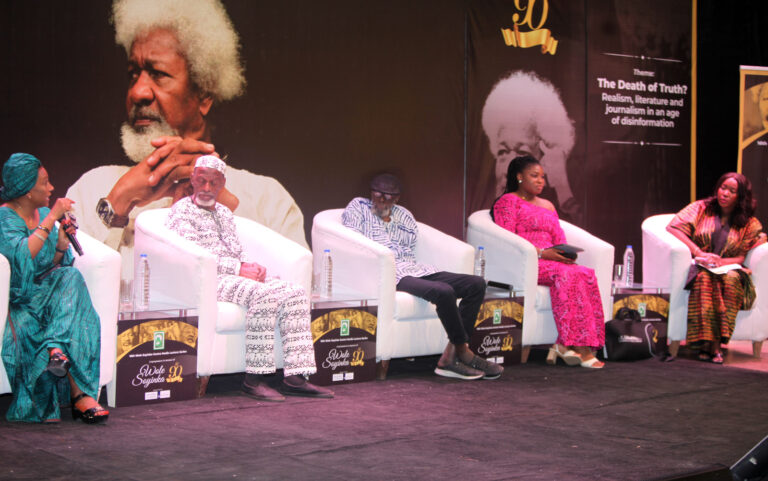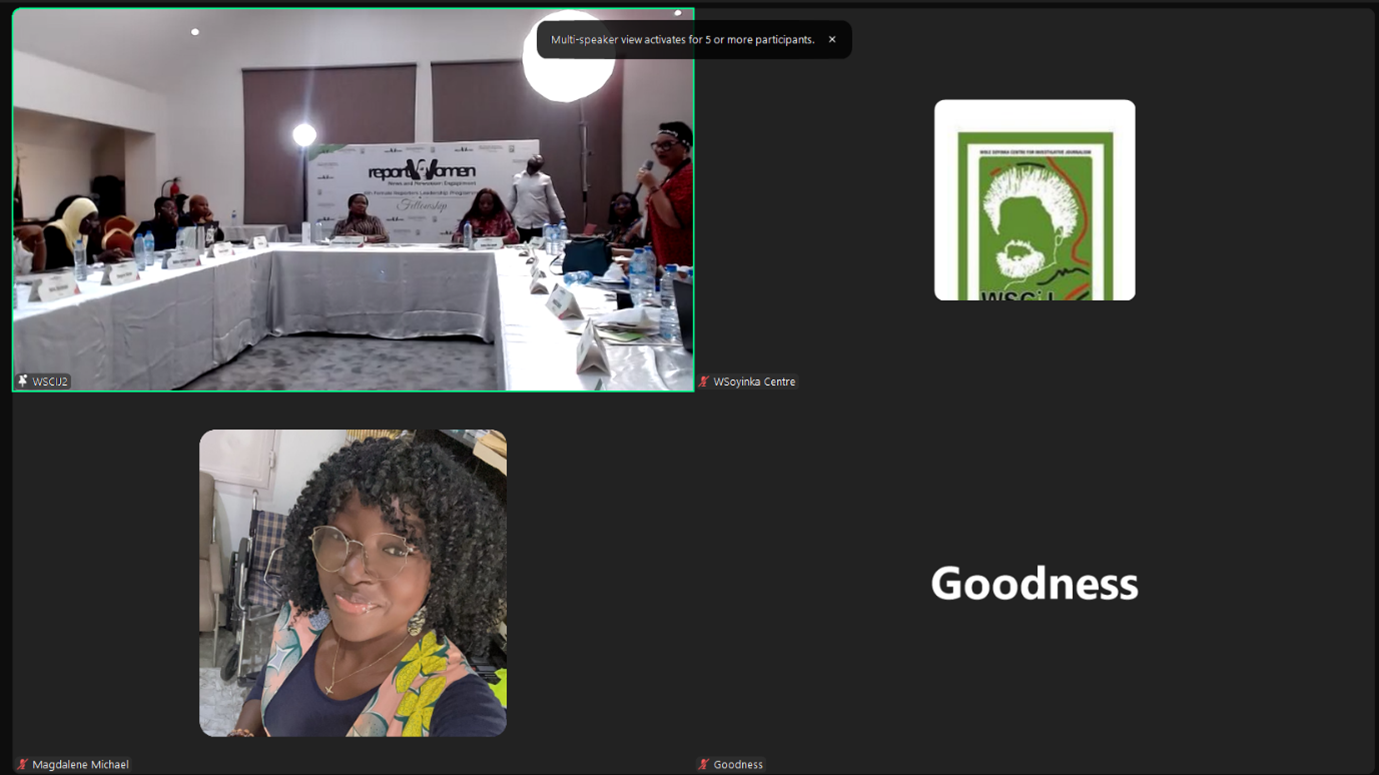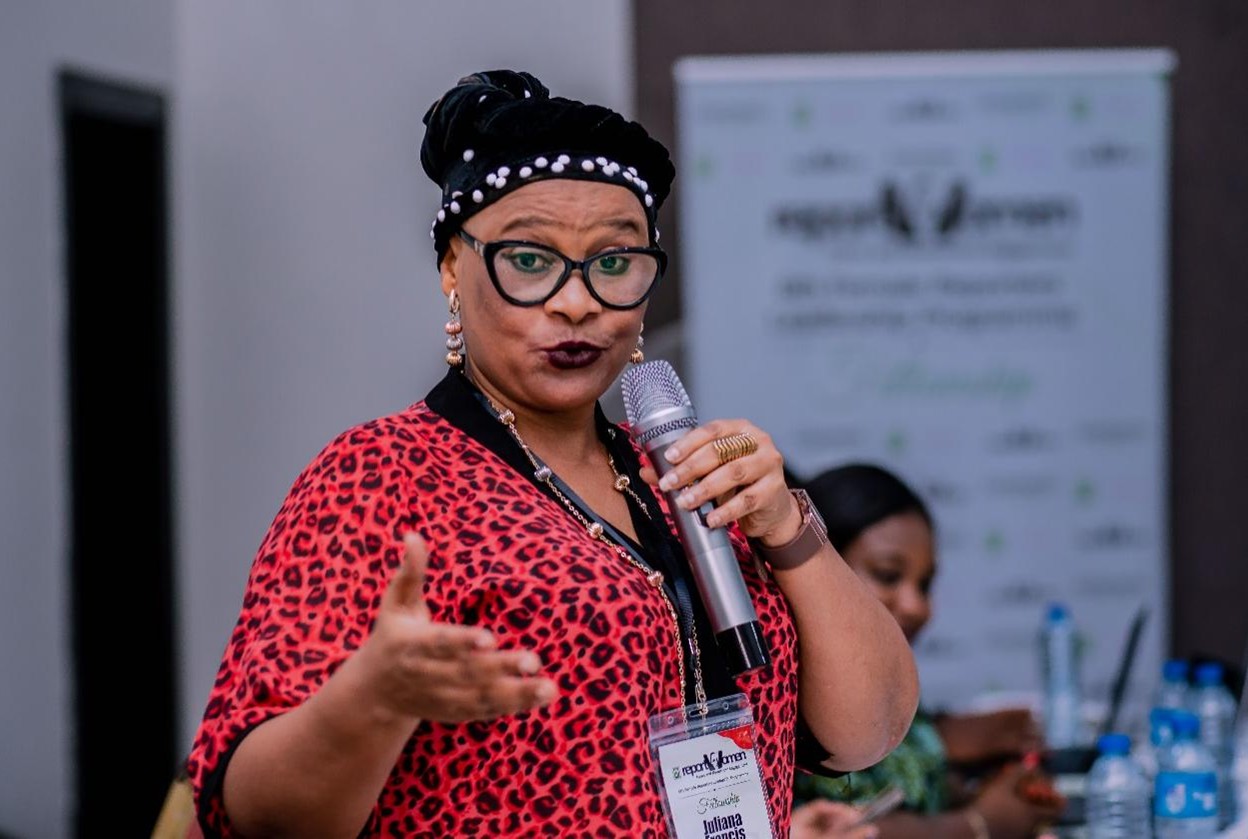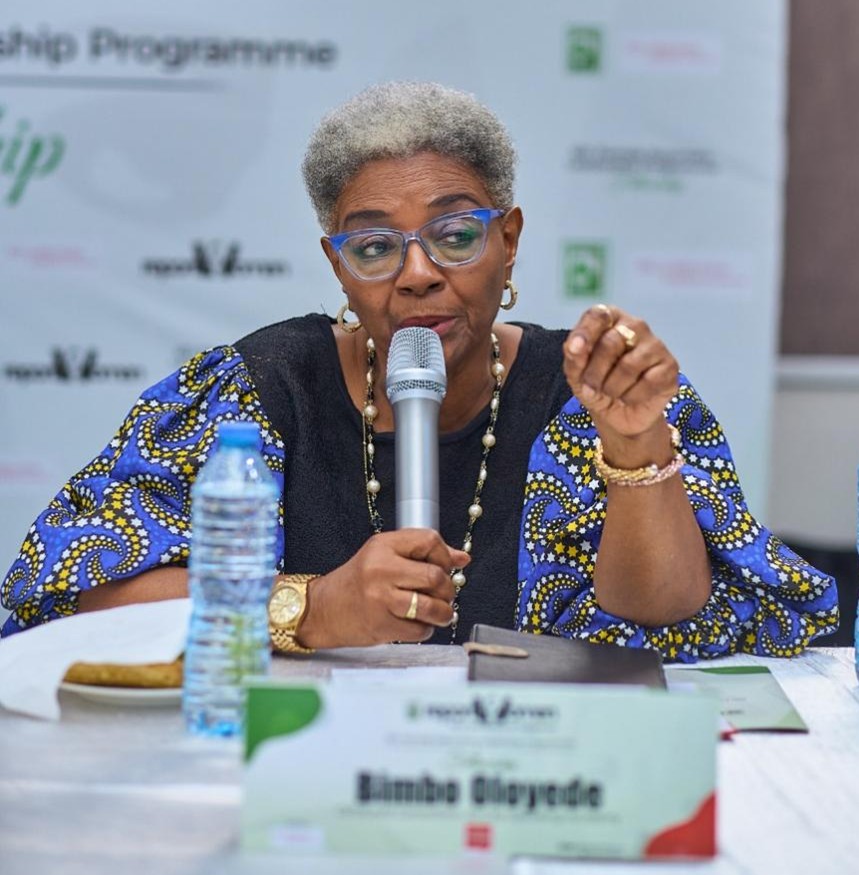The resilience of truth which speakers said cannot die despite unprecedented rise in global misinformation and disinformation was the focus at the 16th Wole Soyinka Centre Media Lecture Series at the Agip Recital Hall, MUSON Centre, Lagos. The event with keynote address by Biodun Jeyifo, Professor Emeritus of English at Cornell University and of Comparative Literature and African and African American Studies at Harvard University marked the 90th birthday of Wole Soyinka, Africa’s first Nobel Laureate in literature and grand patron of the Wole Soyinka Centre for Investigative Journalism (WSCIJ).
Jeyifo highlighted the dangers posed by social media’s “constant streams of conspiracy theories and falsehoods.” He emphasised that the intertwining of truth and falsehood drives the world deeper into what he called “a dystopia of lies,” while he warned about the dangers posed by Artificial Intelligence, which further blurs the lines between lies and falsehood. Specifically, Jeyifo identified former American President and current candidate of The Republicans Donald Trump and owner of X, the micro-blogging App, Elon Musk, as leading figures among many others in the spread of falsehood.
Reflecting on the event theme titled, ‘The Death of truth? Realism, literature, and journalism in an age of disinformation,’ Jeyifo noted that governments worldwide deploy misinformation to deceive rival countries and their citizens. Addressing whether the world is witnessing the death of truth and the triumph of falsehood, Jeyifo asserted that this question cannot be answered without considering the prevalent falsehoods and the ongoing struggle between justice and injustice, which are the primary instigators in the timeless war between truth and falsehood. He however concluded that truth does not die.
Ropo Sekoni, Board Chair, WSCIJ, in his welcome remarks, noted that with Soyinka’s support, the WSCIJ has become one of Africa’s leading NGOs in using investigative journalism to expose corruption, regulatory failures, and human rights abuses. He praised Soyinka as a significant asset to Nigeria and one of the world’s greatest writers, humanists, and activists. “Many of Soyinka’s literary admirers across Africa relate more to Soyinka’s humanism and activism than they do with his literary works of which he was awarded a Nobel prize in 1986,” Sekoni told the audience.
In his goodwill message, Africa Director, MacArthur Foundation, Kole Shettima, described the event as significant. He noted the presence of students from secondary and tertiary institutions as an opportunity for the next generation to learn the importance of truth. Shettima described Soyinka as “difficult to define due to his multifaceted nature” adding that above all, Soyinka is “a human with a profound soul who has consistently fought for justice.”
Michel Deelen, Consul General, Kingdom of the Netherlands in Nigeria, on the other hand, emphasised the importance of investigative journalism for the survival of democracy. He highlighted the role of press freedom and freedom of information as enablers of informed decisions, particularly during elections. He also commended Soyinka’s impact on the global literary community, stressing the importance of history making event for Nigeria.
Chairman, Federal Civil Service Commission, Tunji Olaopa, explained that justice is the first condition of humanity. He pointed out that few literary minds embed philosophical depth in their works like Soyinka. “Wole Soyinka for me is the definition of a patriot. Wole Soyinka in 1967, took a dare to head to Enugu to meet with Col. Odumegwu Ojukwu, the then Military Governor of the Eastern Region. It was a most dangerous mission, more dangerous than holding up the Nigerian Broadcasting Corporation station in Ibadan to replace the speech of Chief Ladoke Akintola who was expecting his victory in the 1967 election to be announced”, he said.
The Chairperson of the occasion, Umaru Pate, Professor of Media History and Vice-Chancellor, Federal University, Kashere, Gombe State, in his remarks thanked WSCIJ for maintaining the quality and sustaining the integrity of the annual lecture in its 16th edition. He stated that the theme is relevant for reflecting on our current state as a country. Pate described Soyinka as a steadfast fighter against deception and a global citizen whose writings are globally significant. He emphasised the need to critically examine the rise of new information technology and social media, which have significantly amplified misinformation and disinformation in journalism and literature.
In her opening remarks, Motunrayo Alaka, Executive Director/CEO, WSCIJ, took the audience down memory lane, back to the beginning 15 years ago when the WSCIJ held the lecture series for the first time on Wole Soyinka’s birthday at the same venue. She acknowledged that achieving a democracy that serves the most vulnerable remains a long and challenging journey. Alaka emphasised that with the right collaborations, both within and outside the media, a strengthened democracy is possible. She lauded Wole Soyinka’s consistent activism even at 90 and asked the audience, “if Wole Soyinka at 90 has not stopped to do things, about the things he believes about our country, why should we stop?”.
Panellist, Odia Ofeimun, a poet, author, and political scientist, said despite the ongoing struggle between truth and falsehood, truth will ultimately prevail. He explained that the survival of humanity depends on defending the truth, noting that lies are not merely a distortion of the truth but an evasion of it. “Truth does not die. Whatever impinges on the truth may attempt to change it. But like gold, it can be regained from the general archaeology. And when truth fails, all of life fails”, he said. According to Ofeimun, the only thing that can survive in a confrontation between truth and falsehood is truth.
Chiamaka Okafor, another panellist and co-founder, Media and Information Literacy and Intercultural Dialogue (MILID) Foundation noted that disinformation thrives in a vacuum created by a lack of trust. She implored participants on the need for self-reflection and media education to promote critical thinking, helping people understand and fact-check the information they encounter. “There is an ongoing power tussle between the truth and falsehood,” Okafor said, just as she lamented what she called “the monetisation of social media platforms”, which, according to her, has made spreading falsehoods a lucrative venture, “turning influencers into ‘influenza’ who get paid for disseminating lies.”
Kadaria Ahmed, CEO, RadioNow 95.3FM, the third panellist, argued that the truth is not dead, but it is on life support. Reflecting on the keynote address, Ahmed said defending the truth requires personal and internal self-examination. Journalists, she argued for example, promote so many divisions in reporting without knowing. “The Nigerian Media mention, “Fulani Herdsmen” but do not have “Igbo Gunmen” or Yoruba “Yahoo Boys”. We think we are fighting something, but we are mostly becoming what we think we are fighting,” Ahmed added. She acknowledged the importance of dissent for progress but warned against youths falling for manipulations of those who have negative agendas.
After, a brief cake-cutting ceremony, Peyibomi Soyinka-Airewele, Professor of Politics at the Ithaca University, who spoke on behalf of the Soyinka family, described the event as incredible and thanked participants for attending. For her, truth has meaning when anchored in the struggle for justice for society, marginalised groups, unheard voices, girls, and women. Following Soyinka-Airewele, Jiti Ogunye, WSCIJ Board Secretary, in his closing remarks, noted that the search for truth and its relevance is eternal, as he thanked everyone for attending the event.
The lecture, which was moderated by Ohi Alegbe, veteran broadcaster and Tolulope Adeleru-Balogun, Head of Programmes, News Central TV, opened with a playlet on how falsehood threatens the truth by students of the Creative and Performing Arts Department of the University of Lagos (UNILAG). In attendance were media practitioners, industry experts, diplomats, private sector representatives, government officials, pressure groups, policymakers, students, and other civil society stakeholders.
Among those present were Kayode Fayemi, former Governor, Ekiti state; Niyi Osundare, Professor of English at the University of Ibadan; Chido Onumah, Executive Director, African Centre for Media and Information Literacy (AFRICMIL); Paul Ugor, Professor of English Language and Literature, University of Waterloo, Canada; Omolade Adunbi, Professor of Anthropology and Afro-American and African Studies at University of Michigan; and Oredola Soluade, Professor of Information Systems & Business Analytics, Iona College, Iona University, New York.
Others were, Shehu Sani, former Senator, Federal Republic of Nigeria; Gatta Abiola, who represented Gbenga Omotoso, Commissioner for Information & Strategy, Lagos State; Chima Anyandike, Professor of Literature in English at Obafemi Awolowo University, Ile-Ife; Joanna Settle, Associates Arts Professor of Arts, New York University Abu Dhabi, UAE; Awam Amkpa, Professor of drama, film and social and cultural analysis at New York University Abu Dhabi, UAE. Also in attendance were students from schools in Lagos, of the Fountain Heights School, Queens College, Methodist Girls High School, Great Success Secondary School, University of Lagos (UNILAG), Yaba College of Technology, and the Lagos State University (LASU).








